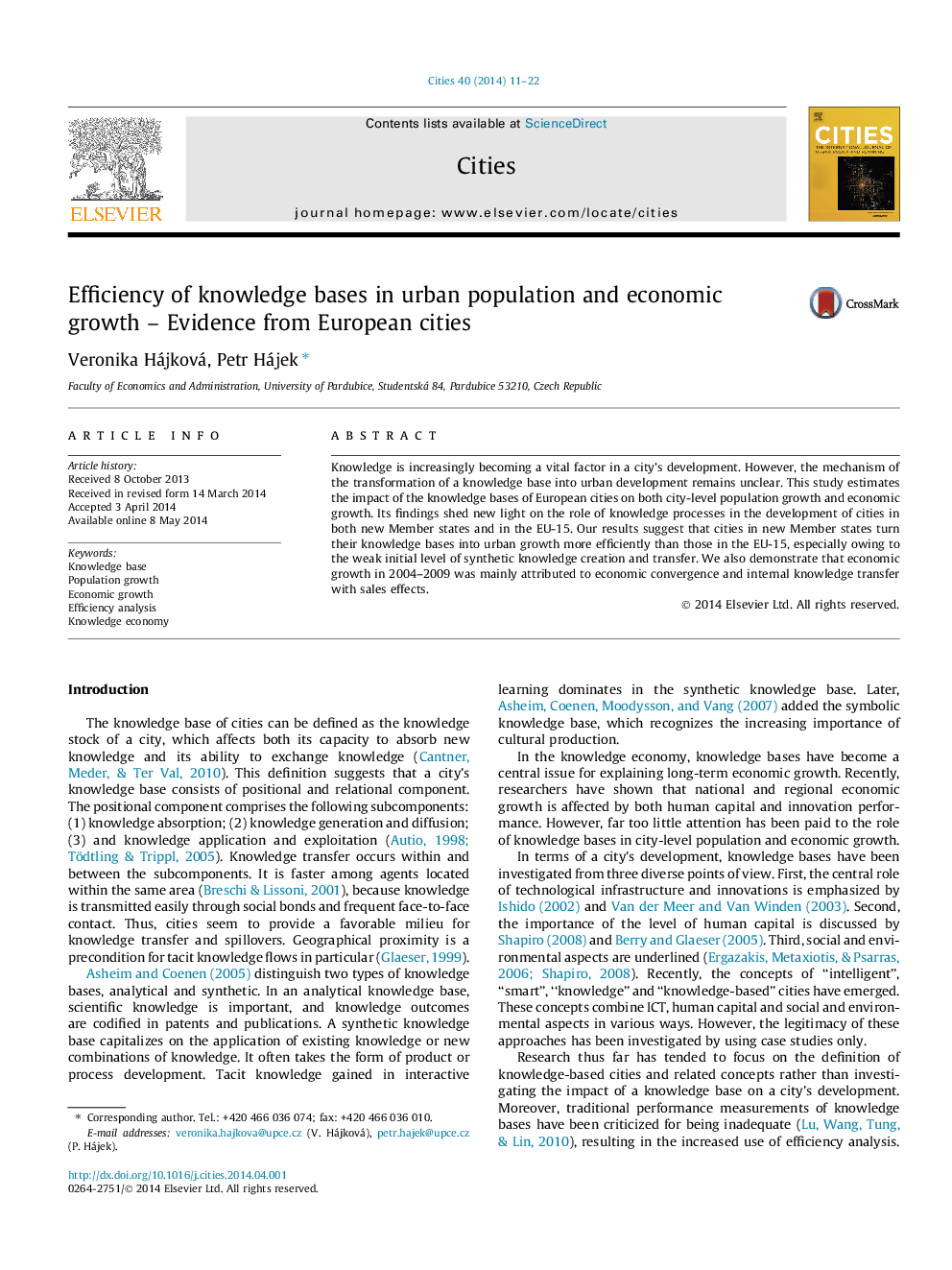| Article ID | Journal | Published Year | Pages | File Type |
|---|---|---|---|---|
| 1008351 | Cities | 2014 | 12 Pages |
•We employ DEA to assess the knowledge base efficiency of European cities.•Cities in new Member states turn knowledge bases into growth more efficiently.•This is due to the weak initial level of synthetic knowledge creation and transfer.•We analyze urban economic growth in 2004–2009.•This is attributed to internal knowledge transfer with sales effects.
Knowledge is increasingly becoming a vital factor in a city’s development. However, the mechanism of the transformation of a knowledge base into urban development remains unclear. This study estimates the impact of the knowledge bases of European cities on both city-level population growth and economic growth. Its findings shed new light on the role of knowledge processes in the development of cities in both new Member states and in the EU-15. Our results suggest that cities in new Member states turn their knowledge bases into urban growth more efficiently than those in the EU-15, especially owing to the weak initial level of synthetic knowledge creation and transfer. We also demonstrate that economic growth in 2004–2009 was mainly attributed to economic convergence and internal knowledge transfer with sales effects.
